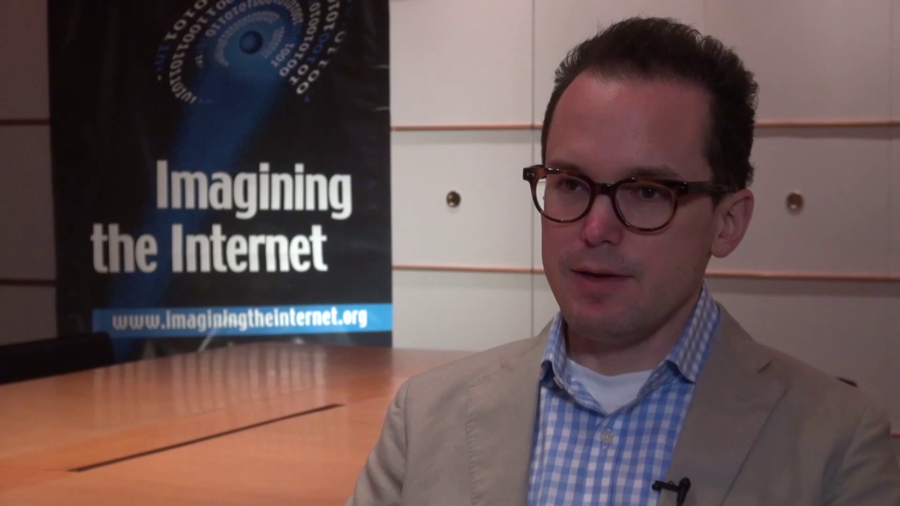Jason Livingood: So I’m a member of the Internet Society board of trustees, and have been involved in obviously helping to lead and guide the development of the Internet Society and set the direction for where we’re going in the future. And professionally I helped start one of the biggest ISPs now in North America, and helped develop their cable modem service for broadband in the United States.
Intertitle: Describe one of the breakthrough moments of the Internet in which you have been a key participant?
Livingood: In terms of breakthrough moments I think the emergence of broadband. So, when I first got involved in the Internet it was mostly dial-up if you were an end user. If you were a big business you might have had a one and a half megabit-per-second line called a T1 line. And I was very involved in the breakthrough and the creation and the deployment across the United States of a cable modem-based broadband service. And to take a service that as a large company, getting one and a half megabits per second and spending thousands of dollars per month and making that something that an average person could afford at twenty, thirty, forty dollars a month was transformative. And that really helped launch the Internet as a consumer service in the United States.
Intertitle: Describe the state of the Internet today with a weather analogy and explain why.
Livingood: Well I think it’s sunny. I think that there are certainly concerns about some aspects of the Internet, whether that’s security or surveillance or other types of things. But generally speaking the Internet I think is a phenomenal, constantly growing and evolving, organic kind of thing. And it’s hard to tell, you know, what’ll come next and what’ll be the next cool thing. But it’s done a fantastic job of connecting people around the world and building communities, and I see a great future for that. But I still think it’s quite good now as well.
Intertitle: What are your greatest hopes and fears for the future of the Internet?
Livingood: The biggest fears are that the Internet will fracture in some way or become balkanized, so to speak, where it breaks up into sort of regional networks and there’s no one global network anymore. So that’s certainly one fear.
And you know, perhaps a related fear is that security of the Internet or the stability of it becomes a problem and that hinders its future growth or its continued growth. But you know, from a positive standpoint, I think that there’s just a huge opportunity to enable people to have access to educational services that they never did before, to have access to the world and to information and to communicate with other people in a really rich way. I think we have very few people, relatively speaking, that are connected to the Internet today. So if you can imagine another four or five or six billion people connected to the Internet, what kind of ideas and new things do they bring? You know, it’s hard to say but I think it’ll be exciting to see what happens.
Intertitle: What action should be taken to ensure the best possible future?
Livingood: Well I think continuing to keep it open. So using open standards. That helps anybody connect to the Internet, it helps drive the cost down of connecting to the Internet and so on. And of developing businesses around it. So I think open standards are important. That has to continue. And the current model of Internet governance, which is an open one, with multistakeholder, consensus-based, not voting based on countries. Those things are important, very important, especially right now.
